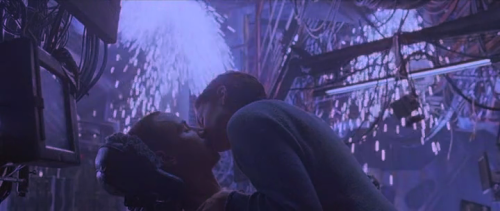Last week I did a speech for school, and I figured that you'd all enjoy it. It's not quite the same in writing as it is being performed, but you get the idea!
* * *
Three
intransitive verbs walk into a bar. They sit. They drink. They leave.
A
dangling modifier walks into a bar. After finishing a drink, the
bartender asks it to leave.
The
bar was walked into by the passive voice.
By
the lack of laughter ensuing these incredibly witty puns, it's
obvious that they are difficult to understand. This
is because they're heavily technical, involving jargon specific to a
field that, I think, isn't explored nearly as much as it should be –
and that field is grammar.
Most
people have the same view towards grammar: it’s useful, sure, and
it has its benefits, but let’s not get pedantic, here. It may
clarify meaning and structure our sentences, but who really cares
where the apostrophe goes or whether to use a comma or not? Does it
really matter?
Why
yes, yes it does.
Let’s
start with the comma. I can understand why we have such issues with
the comma. At primary school, we’re taught to use commas when
listing items and when we’d naturally take a breath in a sentence –
and this is, unfortunately, rather inaccurate teaching. We’re not
told that commas should be used to connect an independent clause to a
dependent clause, and that it can’t connect two independent clauses
– unless, of course, you throw a conjunction in there. We’re not
told that it should be used to offset parenthetical elements, or to
offset introductory elements like prepositional phrases and
participle phrases.
And
you can see why.
But
as we get older and our capacity for big and confusing words grows, I
believe we should learn at least the fundamentals of grammar and how
sentences work, so that we can put an end to the awkward, costly, and
sometimes even deadly misuse of commas.
Consider
this. On May 24, 2010, Stuart Springfield tweeted the following,
badly punctuated sentence: “All those out there that like to cook
and eat my wife just made a new blog at [URL].” Now, of course, he
meant to write, “All those out there that like to cook and eat” -
comma - “my wife just made a new blog at [URL].” But because he
didn't include the comma, the meaning of the original tweet was that
a bunch of cannibals, who take pleasure from eating his wife, just
started a blog. What concerns me about this is that it appears that
the eating process is on-going – not past, but present. And so I
imagine a woman with only one arm and leg, having her limbs lopped
off every now and then, and eaten over a progressive period of time.
Yeah,
punctuation is dangerous.
But
if that doesn't convince you to think about how you employ the comma
in your sentences, take a look at another example of misuse. In 2006,
Rogers Communication, which is Canada's largest cable TV provider,
lost a total of $2,130,000 because of a misplaced comma in a
contract. Forget
losing limbs; that
is an expensive comma.
“Well,
alright,” you say. “You've convinced me. But what about those
other marks?”
Oh,
like the apostrophe? Well, I believe that apostrophes should be used
correctly, if for no other reason, to keep people like me sane. I was
walking through the mall the other day, and I almost had a mental
breakdown because every store I came across was advertising “Father's
Day” with an apostrophe between the r
and
the s.
“Well, hey there, little multimillion-dollar stores; today we're
going to talk about some year one grammar. Did you know that using an
apostrophe between the r
and
the s in
“Father's Day” implies that the day is in honour of only one
father?” Really, the apostrophe should be at the end of the word,
after the s,
implying more than one father. Because, of course, there is more than
one father in the world; and since I'm not related to anyone here, I
think that's safe to say.
But
apart from my sanity, it's also your dignity that's on the line. We
were taught, unlike with commas, how to use apostrophes correctly in
primary school, and so there's really no excuse to see signs such as:
“Please return the trolley's”, with an apostrophe
s.
“That apostrophe! It signifies possession! Return the trolley's
what?”
So,
commas, apostrophes. But when you asked about “those other marks”,
you were really meaning the obscure ones, weren't you? Like colons
and semi-colons, hyphens and brackets. Okay, okay. Well, let me first
give you a little backstory. A few hundred years ago, writers used
these obscure marks at every possible chance they got; and they
followed punctuation rules religiously. You only need to pick up a
book like Moby Dick or Jane Eyre discover this.
But
then, one fine evening, in recent times, everyone went to bed, and in
their dreams they completely forgot what punctuation was, what a
colon, a semi-colon, a bracket was. The next morning, one ingenious
man woke up, looked at his keyboard, and said, “That … that
dot-dot thing … it looks like a pair of eyes! And the banana shaped
one; it's a mouth! And if you join them together … oh my goodness,
it's a face!” And thus smileys were invented.
However,
although they are not commonly used, these kind of “other” marks
do have a very useful and specific function, outside of making up
smileys. Brackets are used to offset parenthetical elements of
sentence. Colons are used to initiate a list. Semi-colons are used to
separate items in a list initiated by a colon, and join two
independent clauses together into a single sentence (such as: I like
cake; cake is good). Even hyphens – hyphens for goodness' sake –
can be useful. Don't believe me? Well, if it's not “extra-marital
sex” with a hyphen between “extra” and “marital”, then
perhaps it's “extra marital sex” without the hyphen, which, as
Lynne Truss points out in her book, Eats,
Shoots & Leaves,
is a completely different bunch of coconuts.
So,
what is the point of this speech? What am I trying to tell you?
I'm
trying to tell you that grammar and punctuation don't have to be
boring, they don't have to be a chore; in fact, they can be really
fun! And if you put in the effort to learn about them, you'll find
that you become much more confident and clear in your writing, your
speaking, and generally your communication of ideas. But most of all,
you'll never ever … have to accidentally tweet about cannibals.
Thank
you.














.png)












